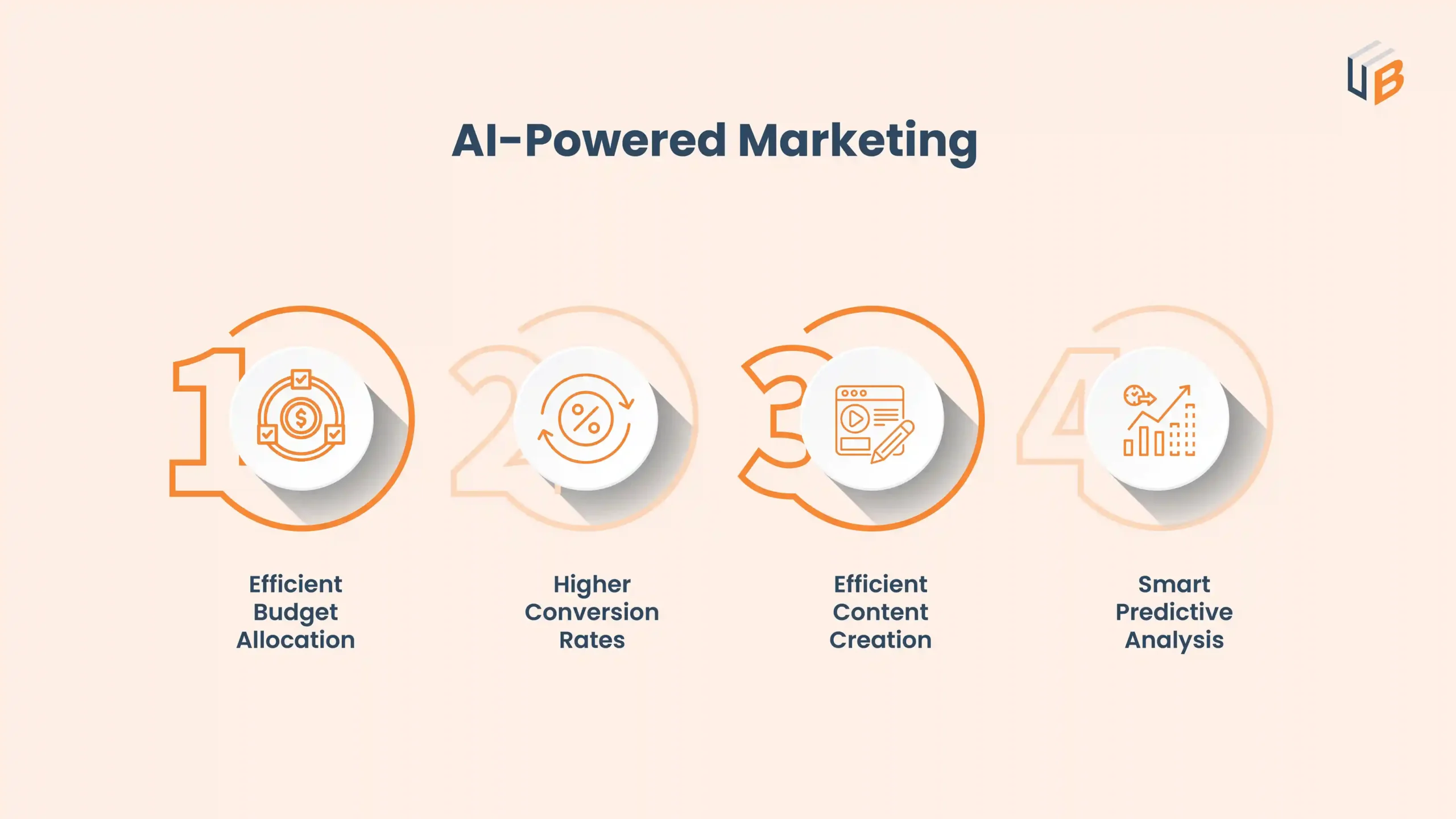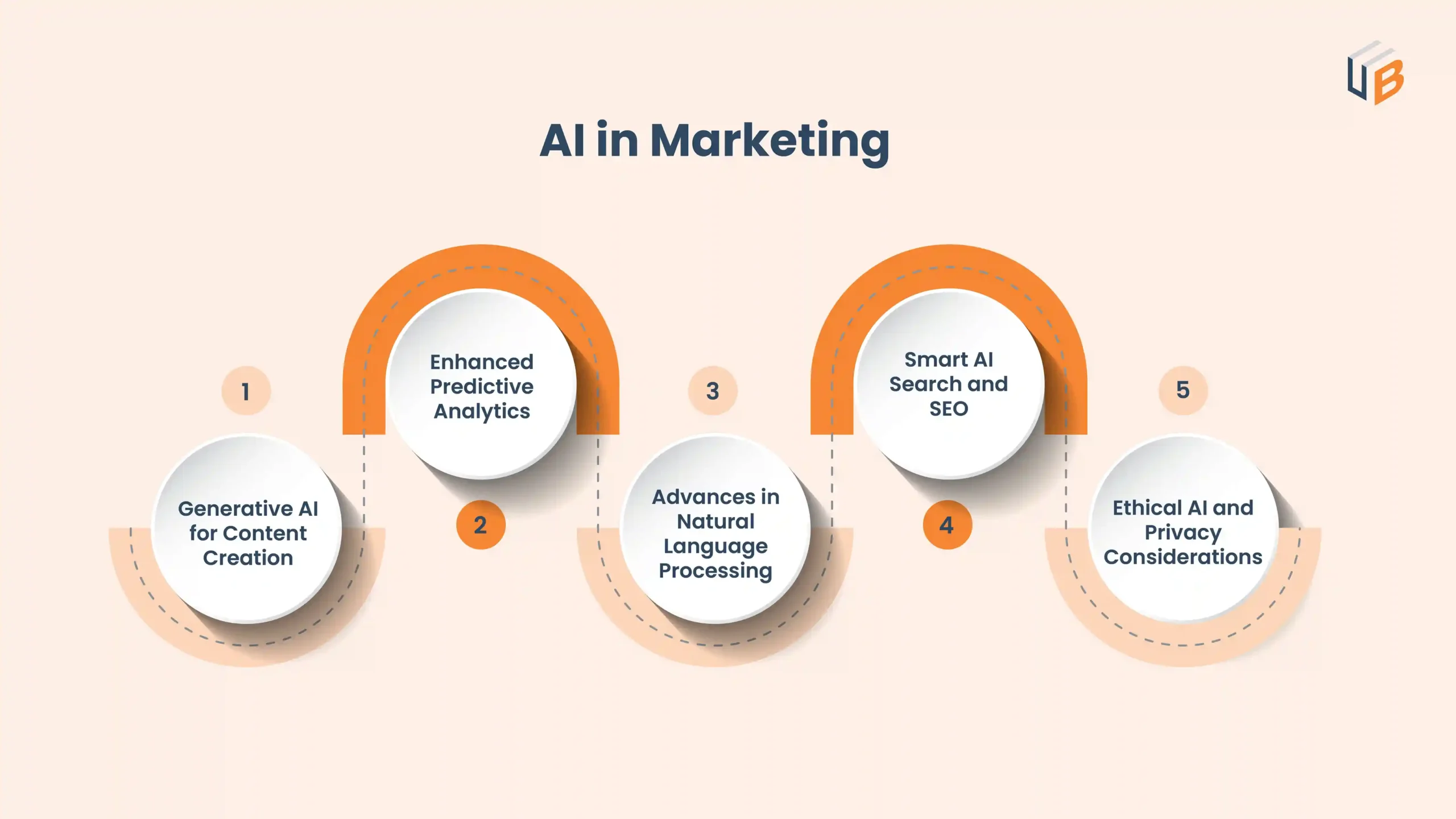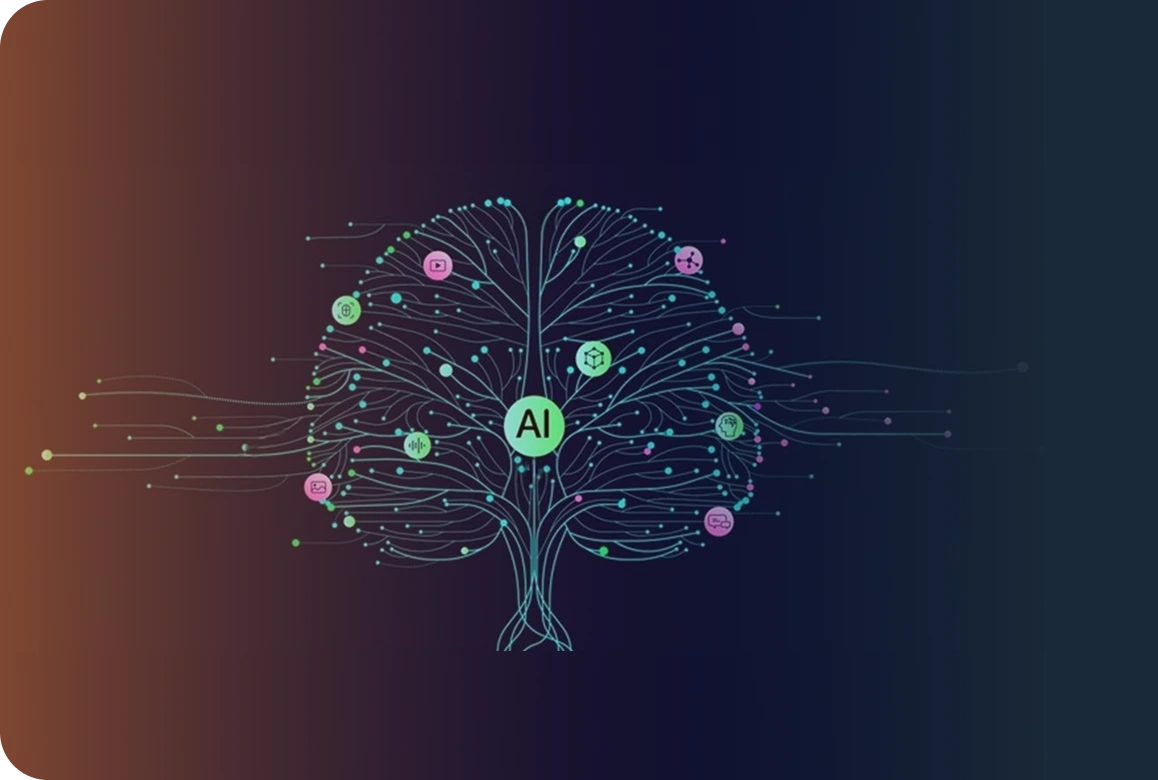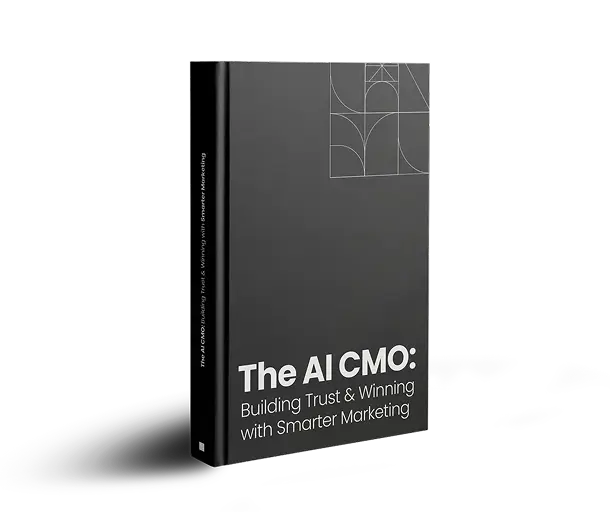
How CMOs Use AI to Optimize Marketing Spend in a Challenging Economy
In this article
Introduction
Marketing With AI: Cost-Effective Strategies

- AI-powered programmatic advertising will be nearly half of B2B ad spending this year. Organizations that have adopted AI for their marketing see ROI improvement of 10-20%, according to McKinsey & Company.
- According to research, 76% of marketers say AI boosts productivity, while 52% find it enhances their customer engagement. An AI-powered retargeting ad campaign typically results in customers who are 70% more likely to convert.
- AI tools that write initial content drafts for social media, email and advertising can reduce marketers’ content creation time by 50%.
- AI-driven predictive analytics forecast your customers’ needs and behaviors to help you build and manage forward-looking strategies. Predictive segmentation can improve conversion rates by up to 20% and enhance the effectiveness of your marketing expenses.
Improve ROI With AI-Fueled Insights
What AI Marketing Tools are Available Now?
-
AI Tools for Marketing Spend Optimization
- RevSure promises real-time insights into campaign performance, allowing marketers to reallocate budgets from underperforming campaigns to more successful ones.
- Amazon Ads uses AI to enhance advertising efficiency through real-time campaign creation, deployment, and budget optimization.
- Facebook Advertising Platform uses sophisticated algorithms to enable targeted ad delivery by analyzing user data to predict engagement.
-
AI Tools for Audience Insights and Preferences
- Google Analytics has AI capabilities that provide comprehensive data on website traffic and user behavior, helping marketers understand audience demographics, interests, and engagement patterns.
- Delve AI is an AI-powered persona generator that combines first-party data with social media and public data sources to create detailed buyer personas.
-
AI Tools for Automating and Accelerating Ad Buying
- Albert AI is a self-learning digital marketing platform that automates various aspects of ad campaigns, including audience targeting, ad creation, and performance analysis.
- Smartly.io manages cross-channel campaigns by automating ad updates in real-time using predictive algorithms that adjust audiences, ads, budgets, and bids to meet performance goals.
- ADYOUNEED offers end-to-end ad management by creating, testing, and deploying ad creatives across platforms like Google, Facebook, and Instagram.
-
AI Tools for Identifying High-Conversion Customer Segments
- Peak.ai uses headless segmentation to gather data from multiple touchpoints, creating a comprehensive customer profile by using AI-driven attributes such as purchase history and churn propensity.
- BlastPoint offers predictive customer segmentation through granular analysis of customer data, allowing marketers to create detailed segments based on behaviors, demographics, and psychographics.
- Heap focuses on behavioral segmentation by analyzing user interactions with websites or apps. It identifies user cohorts based on actions taken, such as page views or transactions.
Leading B2B Marketers Already Rely on AI
- Salesforce has been an early adopter of AI in their B2B marketing. They use AI to predict which leads will convert more easily. With that information, the sales teams can concentrate on the prospects with the highest value.
- IBM integrates it’s Watson AI throughout its marketing operations to uncover trends and insights, personalize content, and to handle some customer questions. As a result, IBM has lowered their costs and raised their conversion rates.
- Adobe has advanced its marketing efforts with its own AI platform, Sensei. They mine customer behavior data to forecast future actions and emerging preferences to personalize experiences. They improve their brand experience even while they reduce marketing costs.
- HubSpot uses AI for predictive lead scoring to highlight their most promising prospects. AI also automates their A/B testing of email subject lines and content. With their AI, HubSpot has helped their customers improve their marketing performance.
The Future of AI in Marketing

- Generative AI will revolutionize the creation of marketing content with advanced language models like GPT-4 and its successors, which will grow to be more sophisticated and more sensitive to context.
- Predictive marketing analytics will become more accurate in anticipating customer behaviors and market trends.
- AI-powered customer insights will become deeper through development of natural language processing (NLP) and sentiment analysis of customer feedback and social media conversations.
- Smart AI search and SEO will evolve dramatically as AI-powered search engines understand more about user intent and context and marketers adapt to new search algorithms.
- Ethical AI and privacy considerations will expand as AI becomes more common in marketing. I expect that marketers will chase the right balance between personalization and privacy, AI-influenced decisions will need to become more transparent, and regulation of AI in marketing will expand.
Checklist: How to Allocate Your Budget More Effectively With AI
- Precisely target the right audiences: Focus your marketing efforts on the customers most likely to convert, boosting the effectiveness of every dollar spent.
- Improve campaigns continuously: Monitor your campaign performance metrics and adjust your program on the fly.
- Use predictive analytics for future-facing strategies: Improve your conversion rates and be sure that your marketing goes to your most profitable opportunities.
- Automate repetitive tasks to save time and resources: Automates tedious and time-consuming processes like data analysis, audience segmentation, and content creation, freeing up your marketing team to concentrate on strategy and creativity.
- Create hyper-personalization at scale: Use AI-powered tools to create highly detailed customer personas and deliver highly personalized content, product recommendations, and offers.

What’s Holding Your Team Back from Engaging the Right Leads?
Be a part of 1000+ successful clients that have chosen UnboundB2B for growth.
Discover more resources

Successful B2B Lead Generation requires generating Marketing Qualified Leads. In this article, we have discussed how to identify MQLs and 10 practical tips to generate more MQLs. These tips cover essential strategies from optimizing your sales funnel to leveraging engaging videos and interactive content. You'll learn about the importance of strong calls-to-action, utilizing chatbots, and implementing Account-Based Marketing. We'll explore how a Customer Data Platform can improve your targeting and lead-generation efforts. By implementing these strategies, you can significantly improve your MQL generation and boost your B2B growth.

Demand for SaaS products and services has increased significantly in recent years. By making cloud-based software solutions more accessible, SaaS companies bring technology closer to modern businesses. The increased demand has resulted in a highly competitive SaaS environment. One effective strategy companies can use to stay ahead of the competition is SaaS advertising. Read on to discover how ad platforms facilitate SaaS advertising and find out which advertising platforms your company can leverage to succeed in sales.











